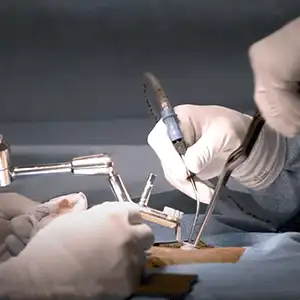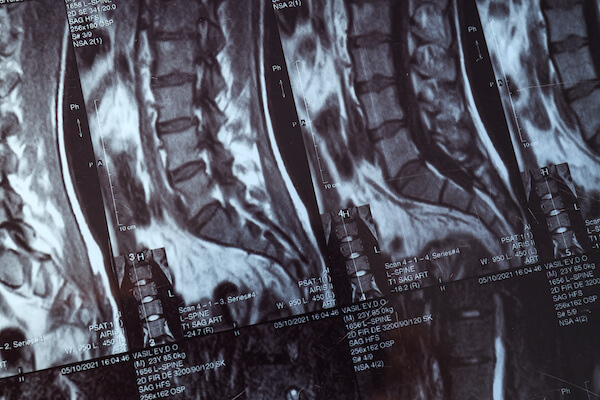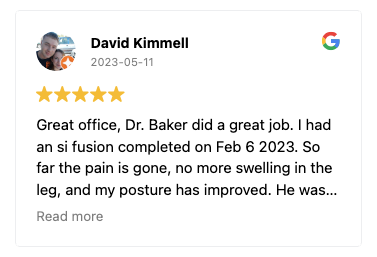Preparing for Minimally Invasive Spine Surgery

Introduction to Minimally Invasive Spine Surgery
Minimally invasive spine surgery (MISS) represents a significant advancement in the field of spinal health, offering a safer and more efficient alternative to traditional open spine surgeries. By utilizing modern technology, minimally invasive spine surgery in Dallas has revolutionized the way spinal conditions are treated, providing better outcomes, shorter recovery times, and reduced risk of complications.
Understanding the Concept of MISS
The Evolution of Spine Surgery Techniques
MISS leverages advanced imaging and specialized instruments to access the spine through small incisions. This approach contrasts with traditional surgeries that require larger incisions and more extensive tissue disruption.
Technological Advancements in MISS
Cutting-edge technologies like real-time 3D imaging, computer-assisted navigation, and robotic-assisted surgery have enhanced the precision and safety of MISS, allowing surgeons to perform complex procedures with remarkable accuracy.

Conditions Treated with MISS
Minimally Invasive Spine Surgery (MISS) has emerged as a groundbreaking approach in treating a wide range of spinal disorders. This technique offers significant advantages over traditional open spine surgeries, such as reduced tissue damage and quicker recovery times. The spectrum of conditions that can be effectively managed using MISS is diverse, catering to various spinal issues.
Herniated Discs
A common condition treated by MISS is herniated discs. This occurs when the disc material between the vertebrae protrudes, often compressing nearby nerves. MISS techniques enable surgeons to remove or repair the herniated disc with minimal disruption to surrounding structures, significantly alleviating pain and restoring function.
Spinal Stenosis
MISS is also utilized in the treatment of spinal stenosis, a condition characterized by the narrowing of spaces within the spine, which can put pressure on the nerves. Through MISS, surgeons can decompress these areas, relieving symptoms like pain, numbness, and muscle weakness.
Degenerative Disc Disease
Degenerative disc disease, where spinal discs wear down over time, is another condition treatable with MISS. Procedures like spinal fusion or disc replacement can be performed through small incisions, helping to stabilize the spinal segment and alleviate pain.
Spondylolisthesis
Spondylolisthesis, involving the displacement of one vertebra over another, often leads to significant discomfort and instability. MISS allows for precise correction and stabilization of the affected vertebrae, with minimal impact on healthy spinal tissue.
Spinal Deformities
Certain types of spinal deformities, such as scoliosis or kyphosis, can also be addressed through minimally invasive techniques. MISS can be used to correct abnormal spinal curvature, reducing pain and improving posture and mobility.
Lumbar and Cervical Radiculopathy
Conditions like lumbar and cervical radiculopathy, caused by nerve compression in the lower back or neck, respectively, are effectively managed using MISS. The approach helps in decompressing the affected nerve roots, thereby alleviating pain and discomfort.
Fractures and Traumatic Spinal Injuries
MISS is also beneficial in treating spinal fractures and injuries resulting from trauma. It allows for the stabilization of fractured vertebrae and the repair of injured spinal structures with minimal surgical intervention.
Infections and Tumors
In some cases, spinal infections or tumors can be treated using MISS techniques. These procedures enable surgeons to remove tumors or infected tissue with reduced risk and faster recovery compared to traditional surgery.
Preparing for Your Surgery
Consultation with Dr. Baker
Before your surgery, a detailed consultation with Dr. Baker is essential. This includes discussing your medical history, current medications, and any allergies. Understanding the specific procedure and setting realistic expectations are crucial steps in your surgical journey.
Pre-Operative Assessments
Comprehensive pre-operative assessments, including blood tests, imaging studies, and physical examinations, are necessary to ensure you are fit for the surgery and to plan the procedure accurately.
Pre-Surgery Instructions
Medication and Diet Guidelines
You may need to adjust your current medications, especially blood thinners, and follow specific dietary guidelines to prepare your body for surgery.
Arranging Post-Surgery Care
Organizing for post-surgery care, including transportation, home assistance, and follow-up appointments, is vital for a smooth recovery process.
The Day of the Surgery
What to Expect
On the day of your surgery, arrive at the hospital as instructed. You will be prepared for the operation, which includes administering anesthesia and preparing the surgical site.
Intraoperative Care
Dr. Baker and the surgical team will employ state-of-the-art techniques and equipment to perform the procedure with the utmost care and precision.
Post-Surgery Recovery
Immediate Postoperative Care
After the surgery, you will be closely monitored to manage pain and prevent complications. The recovery time for MISS is significantly shorter compared to traditional surgery, with many patients returning home within a day or two.
Rehabilitation and Physical Therapy
Post-surgery rehabilitation is crucial. Physical therapy will begin soon after the surgery to aid in your recovery and ensure the best possible outcome.
Long-Term Outcomes and Success Rates
Enhanced Recovery and Reduced Complications
MISS offers enhanced recovery experiences with reduced pain, lower risk of infection, and less scarring. The success rates of MISS are highly encouraging, with many patients experiencing significant relief from their symptoms.
Lifestyle Adjustments for Optimal Recovery
Adhering to prescribed physical therapy regimens and making necessary lifestyle adjustments are key to ensuring a successful recovery and preventing future spinal issues.
Setting Expectations for MISS
A New Era in Spine Surgery
As you prepare for your minimally invasive spine surgery, it's important to understand that you are part of a new era in spine health. With the advancements in medical technology and the expertise of Dr. Baker, you can look forward to a swift recovery and a return to a pain-free life.
Continuous Support and Care
As an expert neurosurgeon and spine surgeon in Dallas, Dr. Baker and his team are committed to providing you with the best care and support throughout your surgical journey. From pre-surgery preparation to post-operative care, you are in skilled hands.
Looking Forward to Improved Quality of Life
MISS is more than just a surgical procedure; it's a path to improved quality of life. With reduced pain and enhanced mobility, you can look forward to enjoying your daily activities with renewed vigor.
Remember, successful surgery is a collaborative effort between you and your surgical team. By following these guidelines and maintaining open communication with Dr. Baker, you can optimize your surgical outcome and pave the way for a healthier, more active future.
Dr. Abdul Baker - An Expert Neurosurgeon in Texas
Every neurosurgery has its complications; thus, a patient must choose the best neurosurgeon for himself. Dr. Abdul Baker is one of the most experienced and qualified neurosurgeons in Texas, treating patients for more than 16 years. People in Sherman, Plano, and nearby areas trust him for every kind of neurosurgery due to his surgical procedures’ 100% success rate. You may visit him if you need any consultancy or treatment regarding your brain and spine disorders.


Dr. Baker specializes in neurosurgery, neurosurgical spine surgery, neurotrauma, brain tumors, spinal tumors, and peripheral nerve damage treatment.









